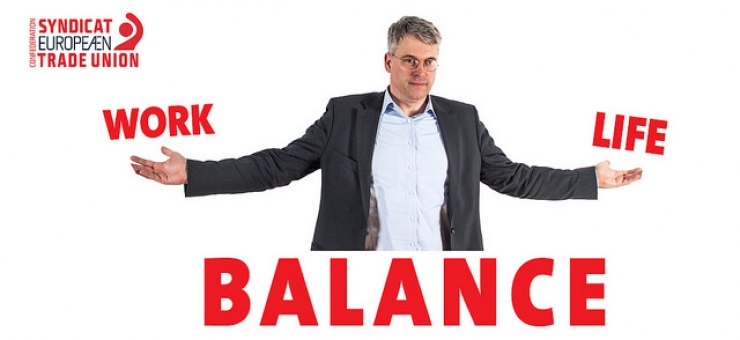News
Balancing the challenges of work and private life

The European Trade Union Confederation believes workers must be able to combine their working and private lives in a way that meets the needs of parents, children, carers and dependants. Evidence shows that a fair ‘work-life balance’ is good for workers, employers and society in general.
Steps are also necessary to redress the gender inequality which persists across Europe, making it harder for women to enter the labour market, forcing them to make up for inadequate social care, and depriving them of equal pay and economic independence.
UNI Europa supports the ETUC decision fully. Oliver Roethig, Regional Secretary of UNI Europa commented: 'With the ongoing rapid digitalisation of the workplace as well as the rise of atypical and precarious work relationships, it is vital to draw the line and ensure workers get the needed rest and varied external input to lead a productive and safe work life. Healthy work-life balance will increase satisfaction and productivity at the workplace.'
In 2017, the European Commission has promised to put forward new proposals to ease the lives of hard-pressed workers and their families, and it has been consulting the social partners. The ETUC is demanding a range of ambitious measures which live up to people’s expectations and make a real difference to their lives. This requires not only legislation but also concrete action to implement and support it. These are the main points: Legislation:
- Revision of the Maternity Directive to guarantee at least 18 weeks’ leave on full pay, better protection from dismissal, and breastfeeding facilities for all women, regardless of employment status;
- A Paternity Leave Directive guaranteeing adequate paternity leave and job protection;
- Revision of the Parental Leave Directive to offer adequate pay, greater flexibility and to enable men to be fully involved in their children’s lives.
- A new directive on carers’ leave and access to affordable professional support.
In the workplace:
- Flexible working arrangements offering workers – especially parents – more control over their time and ensuring equal pay and career opportunities for women.
- Collective agreements with trade unions at national or company level to find solutions appropriate to workers’ needs.
The ETUC emphasises that it is ready to negotiate on these issues with the European employers, in the framework of the social partners’ autonomous work programme. However, if such negotiations are unsuccessful, we urge the European Commission to make progress through legislation.
Read the ETUC position

